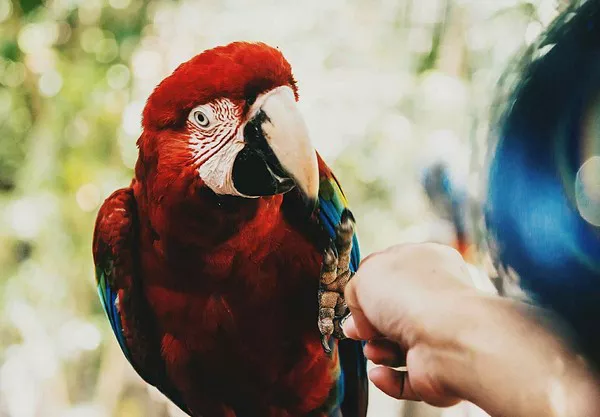Corn snakes, with their colorful patterns and gentle demeanor, have become one of the most popular choices for reptile enthusiasts and pet owners alike. These non-venomous snakes are native to the southeastern United States and have won hearts worldwide due to their easy care and calm nature. However, many prospective and current owners ponder a common question: “Do corn snakes show affection?”
This article delves into the behaviors of corn snakes, examines the nature of reptilian “affection,” and offers a deeper understanding of what it means to form a bond with these fascinating creatures.
Understanding Affection in Animals
Before discussing whether corn snakes show affection, it’s crucial to understand what “affection” means in the animal world. Affection in mammals—like dogs or cats—is often expressed through behaviors such as cuddling, licking, or seeking attention. These actions are typically tied to complex emotional capacities and social structures. Mammals, being warm-blooded and highly social, often rely on affection to strengthen bonds and ensure survival within a group.
Reptiles, on the other hand, are cold-blooded and largely solitary. Their brains are less developed in areas associated with emotion and social bonding. This doesn’t mean they are emotionless, but their instincts and behaviors are primarily driven by survival rather than social or emotional needs.
The Nature of Corn Snakes
Corn snakes are part of the Colubridae family and are generally non-aggressive. They are known for their adaptability, both in the wild and in captivity. Their calm temperament has led many to believe that they may exhibit behaviors akin to affection. But is this the case?
Behavior in the Wild
In their natural habitat, corn snakes are solitary creatures. They do not form social bonds with other snakes or animals, even during mating. After laying eggs, females do not exhibit parental care, leaving the hatchlings to fend for themselves. This solitary lifestyle indicates that corn snakes are not naturally inclined toward affectionate behaviors.
Behavior in Captivity
Captive corn snakes often display calm and tolerable behavior toward their human handlers. They may remain still when held, explore their surroundings while coiled around an arm, or rest quietly in their owner’s hands. While these actions may seem affectionate, they are better understood as signs of comfort and lack of stress rather than genuine affection.
How Do Corn Snakes Interact With Humans?
Corn snakes can form a level of trust with their owners through consistent and gentle handling. This trust often manifests in behaviors that are misinterpreted as affection. Let’s break down some common actions and what they likely signify:
Coiling Around You
When a corn snake wraps itself around your arm or fingers, it’s not an act of love or affection. Instead, the snake is seeking security and stability. Snakes feel vulnerable when unsupported, and wrapping around something sturdy gives them a sense of safety.
Calm Behavior During Handling
A calm corn snake during handling suggests that it feels secure and is not perceiving you as a threat. This is a result of regular and gentle handling, which conditions the snake to recognize you as non-threatening. However, this is more about familiarity than affection.
Seeking Warmth
Being ectothermic (cold-blooded), snakes rely on external heat sources to regulate their body temperature. If a corn snake seems to “snuggle” against you, it is likely seeking the warmth of your body rather than expressing affection.
Exploratory Behavior
A snake slithering across your hands or shoulders is engaging in exploratory behavior. This curiosity is driven by instincts to understand its environment, not by emotional attachment.
The Science of Reptilian Cognition
The reptilian brain, often referred to as the “reptile complex,” is primarily focused on survival. Its primary functions include regulating bodily functions, responding to threats, and ensuring reproduction. While reptiles are capable of learning and remembering, their behaviors are rooted in instinct rather than emotion.
Studies on reptilian cognition have shown that snakes can recognize patterns and respond to conditioning. For example, a corn snake might learn to associate its owner with feeding times or gentle handling. While this recognition demonstrates intelligence, it doesn’t equate to affection. The snake is responding to stimuli and forming habits, not forming an emotional bond.
Building Trust With Your Corn Snake
While corn snakes may not show affection in the way mammals do, they can still form a level of trust and comfort with their owners. Here are some tips for building a positive relationship with your corn snake:
Handle Regularly, But Gently
Consistent handling helps your corn snake become accustomed to human interaction. Always approach your snake calmly and avoid sudden movements.
Create a Comfortable Environment
Provide a habitat that meets all your snake’s needs, including proper heating, humidity, hiding spots, and substrate. A stress-free snake is more likely to tolerate handling and interaction.
Respect Their Boundaries
Every snake has its own tolerance for handling. Some may be more relaxed, while others prefer minimal interaction. Pay attention to your snake’s body language to avoid causing stress.
Feed Appropriately
Feeding your corn snake regularly and appropriately not only ensures its health but also helps establish a routine, making it more comfortable with your presence.
Be Patient
Building trust takes time. Over time, your snake will associate you with safety and security, leading to more relaxed interactions.
How Do Reptile Owners Interpret Affection?
Many reptile owners develop a deep bond with their pets, despite the lack of traditional affectionate behaviors. This bond is built on trust, routine, and the joy of observing the snake’s natural behaviors. While your corn snake may not “love” you in a mammalian sense, the mutual respect and trust you establish can be just as rewarding.
It’s important to remember that interpreting reptilian behavior through a human lens can lead to misunderstandings. Appreciating a corn snake for what it is—a unique and independent creature—allows owners to develop a meaningful connection based on mutual comfort rather than misplaced expectations.
Conclusion
Corn snakes are fascinating and rewarding pets that can thrive in captivity with proper care and handling. While they do not show affection in the traditional sense, they can develop a level of trust and comfort with their owners. By understanding the natural behaviors and instincts of corn snakes, owners can form a bond that respects the snake’s unique nature.
Rather than seeking overt displays of affection, appreciate your corn snake for its calm demeanor, striking beauty, and intriguing habits. The relationship you build with your corn snake will be a testament to patience, respect, and understanding—a truly rewarding experience for any reptile enthusiast.
Related Topics:
























